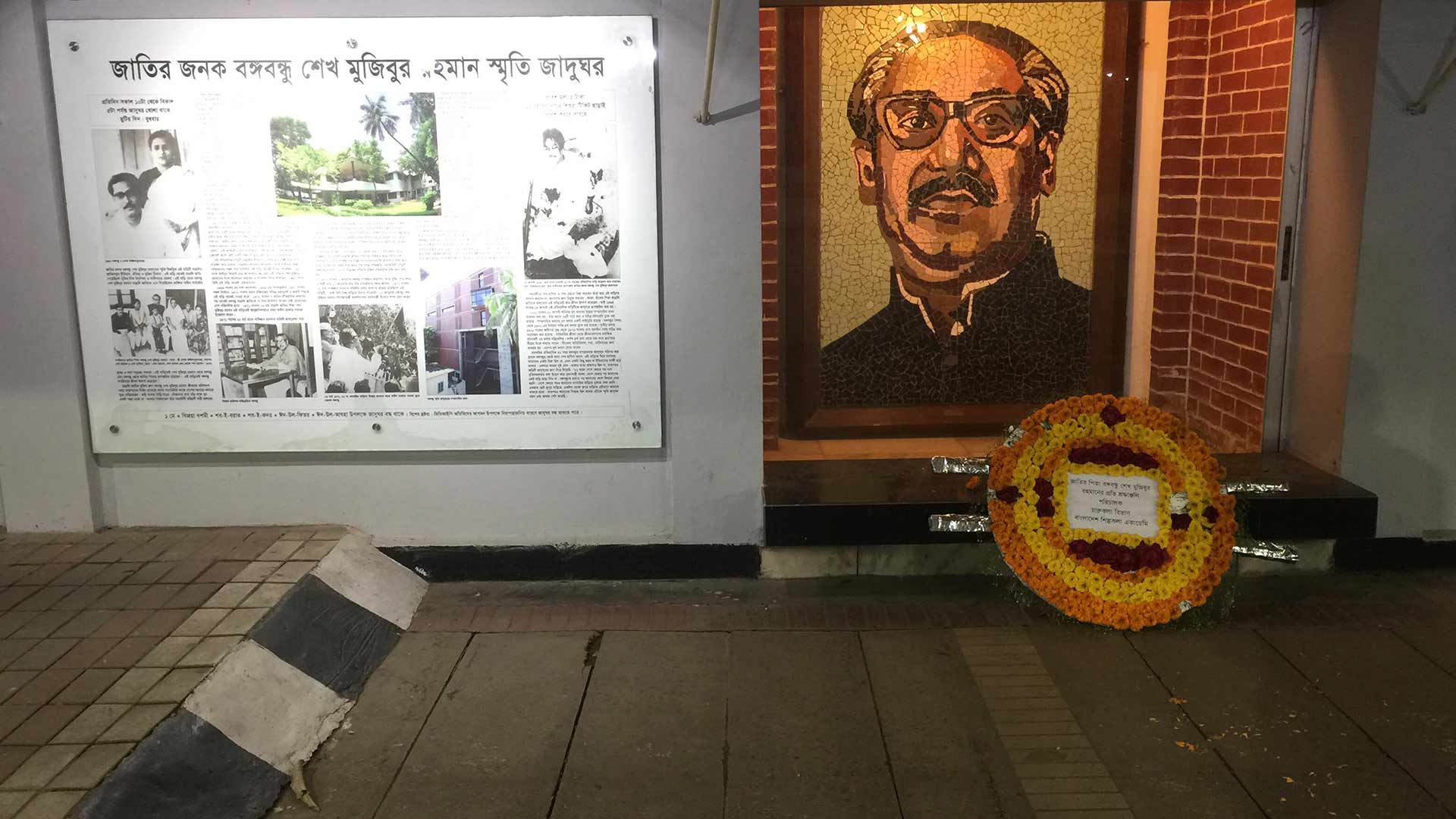A Dark Day in Bangladesh’s History
The tragic event of August 15, 1975, represents a profoundly solemn chapter in the history of Bangladesh. Bangabandhu Sheikh Mujibur Rahman, the esteemed founder of Bangladesh and its first president, tragically lost his life on this day, along with many of his family members.
This unfortunate incident had far-reaching implications and reverberated deeply throughout the nation. We duly recognise August 15 as a day of national mourning and observance, as a symbol of remembrance and reverence for the sacrifices made for Bangladesh’s independence.
The Historical Significance of August 15
Sheikh Mujibur Rahman, affectionately known as Bangabandhu (Friend of Bengal), played a crucial role in leading Bangladesh to its independence. His vision for a self-governing, non-religious, and diverse nation deeply resonated with many.
For his outstanding leadership during the Liberation War of 1971, he rightfully received a medal.
However, the tragic events of August 15, 1975, abruptly ended his aspirations for a progressive Bangladesh. Following his assassination, a military coup ensued, leading to a significant transformation in the country’s political landscape.
My heart goes out to those who were impacted by these tumultuous events.
We steadfastly observe August 15 as a public holiday to honour the memory of the immense loss and uphold the enduring principles represented by Bangabandhu. Today, the entire nation unites with unwavering dedication to democracy, justice, and equal rights while engaging in a contemplation of the country’s impactful history.
The Interim Government’s Decision: Is It Democratically Correct?
The interim government of Bangladesh has recently decided to remove August 15 from the list of national holidays. This development has sparked a spirited national debate, prompting discussions about its implications for democratic processes and its potential effects on the country’s political atmosphere.
This decision could potentially generate controversy when viewed from a democratic standpoint. It’s important to recognise that public holidays in a democracy carry deep symbolism, embodying a nation’s collective experiences and beliefs.
The 15th of August holds immense significance as it marks the establishment of a nation’s identity and the tragic passing of its founding leader.
It’s critical to take into account the viewpoints of the people who value this day, as the government runs the risk of alienating them if it makes changes to the public holiday calendar without careful thought.
In a democratic society, it’s important for decisions that affect the nation’s attitude to involve widespread participation from the general populace.
When the interim administration makes decisions without taking into account the broader opinions of the people, there is a chance to strengthen democratic principles.
By acknowledging and incorporating the emotions and shared experiences of the populace, we can enhance and strengthen the nation’s identity.
Do People’s Emotions Matter?
The sentiments and recollections of the populace have a significant impact on the cultural fabric of any democratic society.
Bangladesh’s intricate and challenging history lends immense importance to its historical figures and events.
The nation’s identity deeply intertwines with the memory of Bangabandhu Sheikh Mujibur Rahman, and the impact of his tragic assassination continues to resonate with many individuals.
It’s possible that the decision to revoke August 15’s public holiday status is an attempt to downplay the significance of the tragic event that occurred on that day.
This situation could potentially lead to a division between the administration and the people, especially those who deeply respect Bangabandhu as the Father of the Nation. Failing to recognise the emotions tied to this day could sow widespread dissatisfaction and a sense of disappointment among the general populace.
Implications for Bangladesh’s Political Climate
The potential removal of August 15 from Bangladesh’s roster of public holidays may require careful consideration due to its possible impact on the country’s political landscape.
Maintaining open lines of communication and fostering understanding among political entities will be crucial in addressing concerns related to this matter.
Additionally, acknowledging and respecting the historical significance of Sheikh Mujibur Rahman’s legacy within the context of the ruling party’s ideals will be important for promoting harmony and cooperation.
On the other hand, opposition parties might take advantage of this decision to further their political goals, which could potentially exacerbate societal divisions and ignite instability.
Some argue that the elimination of the holiday forms part of a broader endeavour to rewrite history or erode the legacy of the nation’s founders, which could exacerbate political turmoil.
This ruling presents an opportunity for Bangladesh to reaffirm its commitment to democratic principles, freedom of speech, and the preservation of its national heritage.
The decision’s potential impact on Bangladesh’s global reputation calls for thoughtful reflection and proactive measures to uphold these important values
Conclusion
The passing of Bangabandhu Sheikh Mujibur Rahman on August 15, 1975, holds immense historical and emotional significance for Bangladesh.
The interim administration’s decision to revoke this day’s public holiday status has sparked profound discussions about democratic principles, the weight of public sentiment, and its potential impact on the country’s political landscape.
Ignoring the collective memory and sentiments of the people in a democratic system would be irresponsible.
August 15 holds a significance that goes far beyond being just a date; it symbolises the nation’s journey, its resilience in the face of challenges, and its ambitions. As Bangladesh grapples with political challenges, it is imperative for its authorities to acknowledge the profound emotional connection that many of its residents have with this day.
The handling of this matter will undeniably have a substantial impact on the nation’s future political discourse and its commitment to democratic principles

